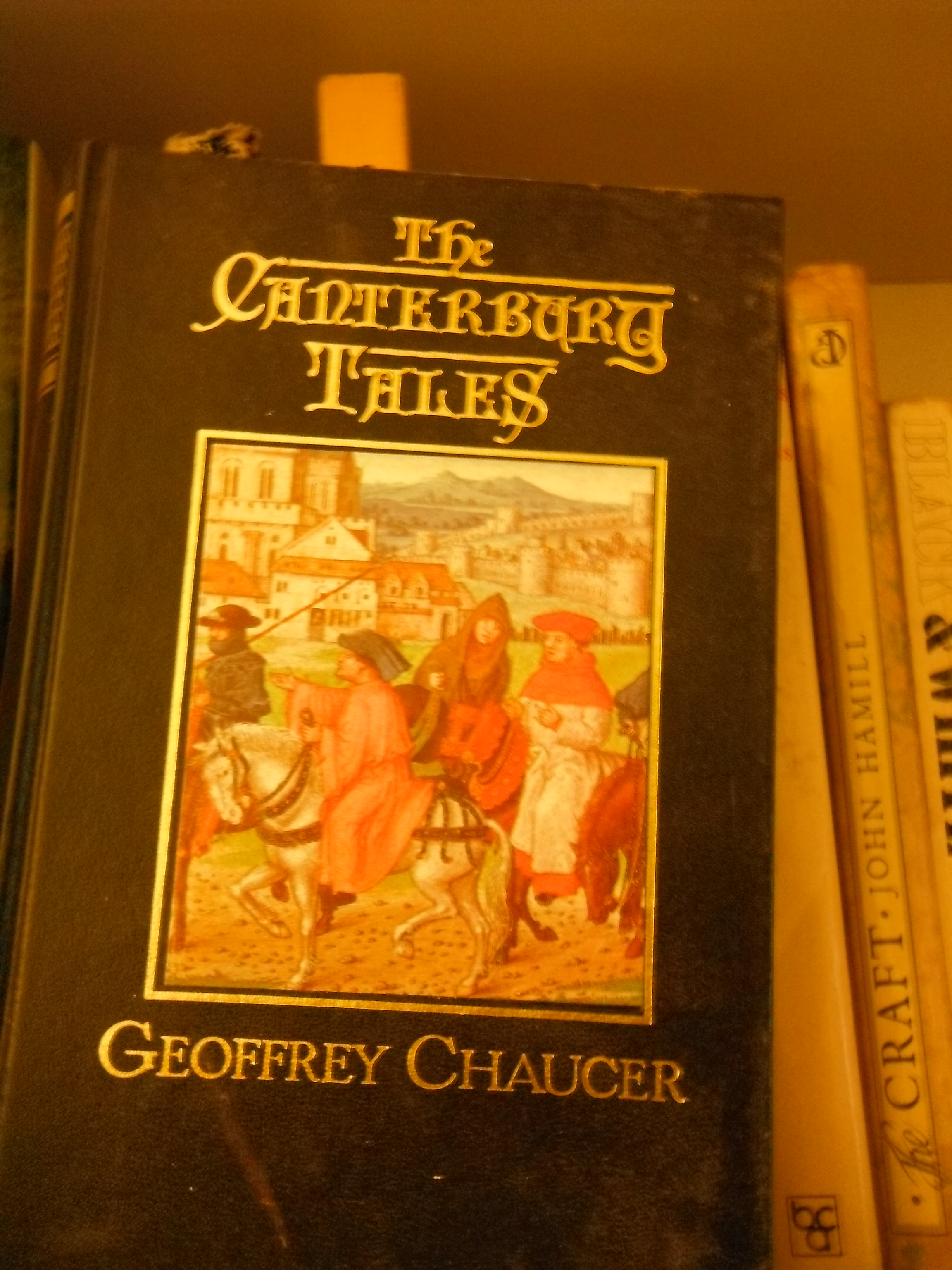Book Review Chaucer The Canterbury Tale The Prioresses Tale
@arthurchappell (44998)
Preston, England
January 24, 2018 4:42pm CST
The Prioress offers a loud, excessively pious prayer for the skill and ability to tell her story well and then launches immediately into the most controversial story in the Canterbury Tales, given its anti-Semitic tone and child murder theme.
Her story is one of a small catholic community in Asia, situated close to a large Jewish ghetto. The community are rich and powerful enough to crush the Jewish population, but the State tolerates the Jews because of their willingness to bend the laws of usury, which makes for handy economic arrangements. It is abundantly clear that the Prioress loathes the Jews with a passion.
The Catholic community run a school for the native children, and one young boy there takes a liking to a Latin song he hears being sung by a Catholic choir. The song is in Latin, and it is a song of dedication to the Virgin Mary, but the boy does not know that. He just likes the words, and though ignorant of Latin, he memorises the sounds and the tune, singing it constantly.
Unfortunately, his route home takes him within earshot of the Jewish Ghetto, and the Jews interpret his innocent hymn singing as a deliberate challenge against their religion, so they capture and murder the boy, leaving him dead in a back alley, where his body is soon found by his grieving mother and the local magistrate.
The Jews are quickly annihilated in reprisal, but something miraculous goes on too – though dead, and with his throat and vocal chords severed, the boy continues to sing his song. The magistrate asks how this marvel is possible; ad the boy tells him that he must continue to sing until a seed placed on his tongue by the Virgin Mary herself is removed just before he is buried. The magistrate removes the seed, and the song ceases immediately. The boy is then given all due burial.
A strange story, and the most overtly religious one in the Canterbury Tales, and a story that can easily offend given its overt and almost rabid contempt for Judaism.
Arthur Chappell
3 people like this
3 responses
@Poppylicious (11133)
•
25 Jan 18
And to think, we haven't really changed much since Chaucer's time. We're still willing to commit mass murder for the sins of a few. So sad.
2 people like this
@arthurchappell (44998)
• Preston, England
25 Jan 18
@Poppylicious yes, it is still frightfully relevent today - Chaucer at least shows genuine sympathy for the boy ghost but only saves him throgh Christian conversion
@arthurchappell (44998)
• Preston, England
24 Jan 18
@Madshadi in keeping with general attitudes of his time - inexcusable now of course
1 person likes this
@Madshadi (8840)
• Brussels, Belgium
25 Jan 18
@arthurchappell those were terrible times
1 person likes this
@arthurchappell (44998)
• Preston, England
25 Jan 18
@Madshadi very much so regrettably
1 person likes this
@celticeagle (172436)
• Boise, Idaho
24 Jan 18
Weird. The Jews sure got a bad wrap down through history.
1 person likes this
@arthurchappell (44998)
• Preston, England
25 Jan 18
@celticeagle yes they certainly did, and sadly they still do
1 person likes this








